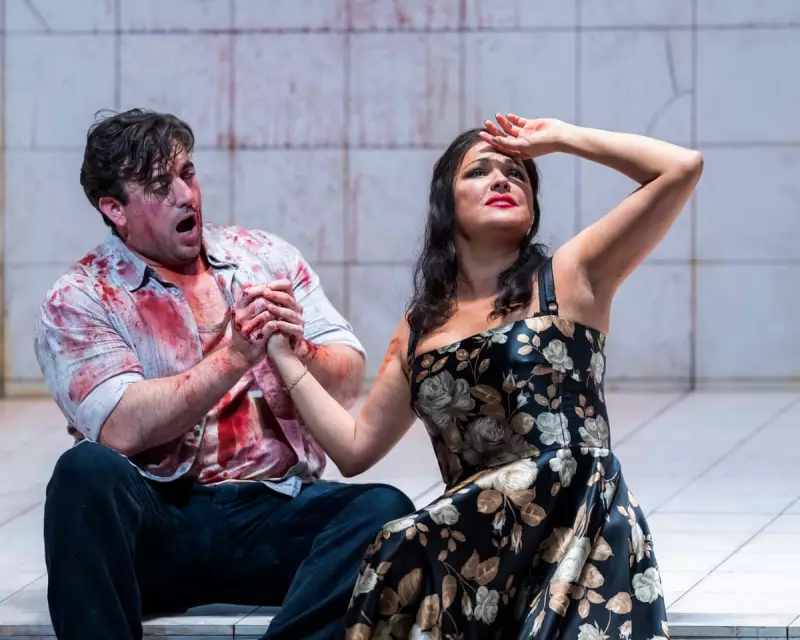
The hallowed halls of London's Royal Opera House are echoing with more than just Puccini's soaring arias this season. A brewing storm of controversy surrounds the return of Russian soprano Anna Netrebko to its iconic stage, casting a long shadow over her highly anticipated performance in Tosca.
The acclaimed singer, once a darling of the global opera scene, finds herself at the centre of a fierce cultural and political debate. Her perceived ties to the Kremlin and her initial reluctance to explicitly condemn Russia's invasion of Ukraine have made her a polarising figure, transforming a night of high art into a platform for protest.
A Stage for Discord, Not Just Drama
As the curtain rose, so did the voices of dissent. A notable number of attendees turned their backs during Netrebko's performance, a powerful, silent act of protest that spoke volumes. Outside the Covent Garden venue, a small but determined group of demonstrators gathered, their Ukrainian flags a stark contrast to the opulent surroundings.
The management of the Royal Opera House has stood firm amidst the furore. In a statement, they defended their decision, emphasising their belief in the power of art to "transcend politics" and unite audiences. They cited Netrebko's subsequent condemnation of the war and her status as an artist, not a political figure, as the foundation for their position.
Netrebko's Complicated Position
For Netrebko, the London engagement is a critical step in rebuilding a career that was upended by the war. Many major institutions, particularly in the US, severed ties with her following the invasion. Her return to a stage as prestigious as the ROH is seen by many in the arts world as a significant moment, testing whether the opera community is willing to welcome her back.
Critics, however, remain unconvinced. They argue that her past support for President Putin and the timing of her statements condemning the war were opportunistic rather than sincere. For them, providing her with such a prominent platform is seen as a moral failure, offering a form of cultural legitimacy to an artist associated with a regime accused of brutal aggression.
A House Divided
The audience reaction was a microcosm of the wider debate. While some met her performance with boos and turned backs, others offered thunderous applause and standing ovations, creating a jarringly disjointed atmosphere. This division highlights the immense challenge cultural institutions face in navigating complex geopolitical conflicts.
The incident raises profound questions that extend far beyond Covent Garden: Can art ever truly be separated from the artist? Where should cultural institutions draw the line? And what is the price of principle in the world of performing arts? For now, the Royal Opera House's production of Tosca is delivering a drama as compelling offstage as it is on it.





